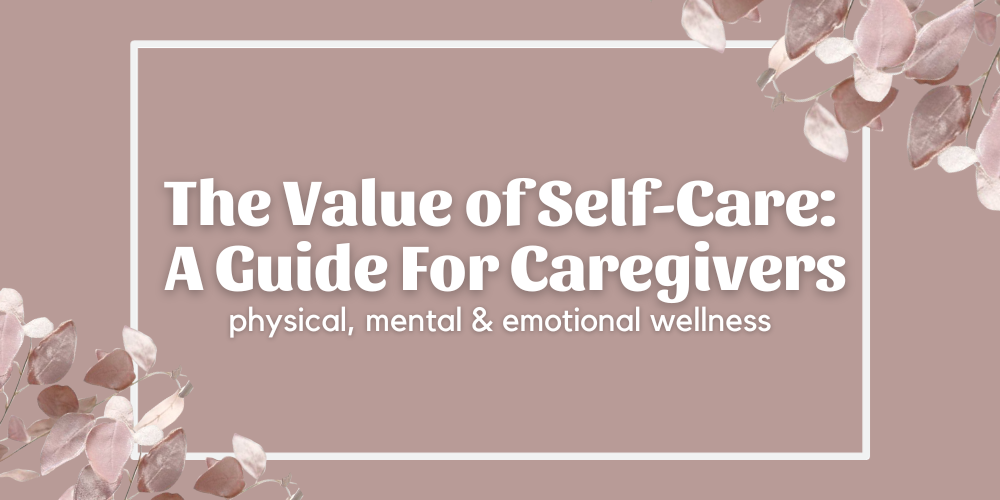Articles
The Value of Self-Care: A Guide For Caregivers

Caring for others is both beautiful and fulfilling, but it can also pose some challenges due to the emotional and physical requirements. Many caregivers find themselves focusing all of their energy on their loved ones, oftentimes forgetting their own needs. But, as the saying goes, “You can’t pour from an empty cup” so it’s important that caregivers take time for themselves, especially as the busy holiday season approaches.
Prioritize Physical Wellness
Physical wellness involves many different components including exercise, balanced nutrition, and adequate sleep. By paying attention to these factors, caregivers can better take care of themselves.
Research shows that physical activity can greatly increase our well-being. Even 10 minutes of walking or stretching can increase mental alertness, energy, and positive mood. As a caregiver, it can be helpful to connect exercise to other activities. For example, walking the dog, mowing the lawn, or taking the stairs instead of the elevator. Caregivers can also add physical activity into their day by joining a gym or partaking in an exercise class. The Engaging Wellness program is a perfect option for caregivers over the age of 55.
Similarly, sleep is another daily part of physical wellness that can be improved with practice. Many people find having set bedtimes and practicing relaxation techniques, like meditation, to aid in their sleep.
Last, but certainly not least, a balanced diet is pivotal when it comes to treating your body right. By eating a diet full of fruits, vegetables, lean protein sources and plenty of fluids caregivers can provide themselves with high-quality, sustainable energy to tackle their day.
Solidify Your Emotional Support
Physical health is important, but mental health deserves equal attention. Caregivers take on a larger mental load due to needing to think of multiple people’s needs at all times. It’s important that caregivers have friends or family to confide in. Having a confidant can allow a caregiver to release some of the pressures of their day-to-day lives.
Some caregivers may also enjoy participating in a support group or speaking with a mental health professional. For caregivers over 60, the Healthy IDEAS program is a wonderful place to receive evidence-based information about depression awareness and recreation therapy.
Create Necessary Boundaries
One of the toughest things to do as a caregiver is setting boundaries. But to avoid burnout caregivers must learn when to draw the line. This could involve delegating tasks to other family members or utilizing professional services. For example, instead of cooking every meal for a loved one they might be able to participate in nutrition services, like home delivered meals.
It can also be helpful to limit the time that one person is the sole caretaker. By using respite services, caregivers can know that their loved one is receiving proper care and that they have time to take care of themselves. The same could be true of hiring help such as bathing services, home support, or transportation. For a full list of services, visit the Area Agency on Aging of Western Michigan’s service directory: https://www.aaawm.org/services
Caregiving is not for the faint of heart. It is a demanding role that requires a lot of resilience which is why it’s so important for each and every caregiver to take time for themselves and their overall wellness.
Tagged:

